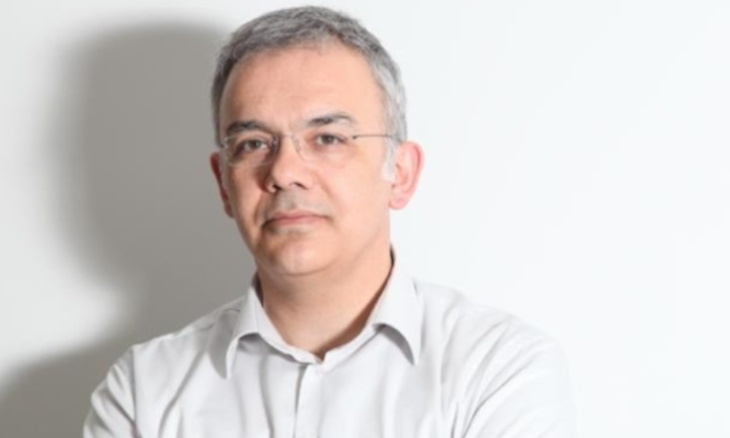Turkey's public-private 'city hospitals' won't ease corona pandemic, experts warn
There has been a rise in the number of city hospitals built in Turkey in recent years using the public-private-partnership model, and while these are large facilities with bed capacities often exceeding 1000, their presence won't necessarily help fight the coronavirus pandemic, according to Dr. Kayıhan Pala, from Bursa's Uludağ University's Medical Department.
Serkan Alan / DUVAR
There has been a rise in the number of city hospitals built in Turkey in recent years using the public-private-partnership model, and while these are large facilities with bed capacities often exceeding 1000, their presence won't necessarily help fight the coronavirus pandemic, according to Dr. Kayıhan Pala, from Bursa's Uludağ University's Medical Department.
Pala, who wrote a book on the subject of city hospitals in Turkey, the construction of which has risen during the tenure of the ruling Justice and Development Party (AKP), said that they have resulted in the closure of many other health facilities.
“If people who are in the situation where they need healthcare that cannot be postponed and are not going to the city hospitals due to the fact that people with the virus are being treated there, than this creates a problem in terms of access to healthcare,” Pala said.
City hospitals are built by private companies on public land, and then rented to the Ministry of Health for a period of 25 years. The company gaining the tender for the hospital project can build shopping centers, parking garages, hotels, and other facilities nearby. These facilities are run like companies, while all of the expenditures of the hospitals are covered by the Ministry of Health.
There are currently 10 city hospitals operating in major cities like Ankara, Bursa, Mersin, Adana and Eskişehir, and another eight that are expected to open this year or in 2021. Ankara's Bilikent City Hospital has a bed capacity of 3700, making it the largest in the country.
“In the situation when these cases occur in this large of a healthcare facility, to stop their spread requires deep-seated efforts. At that point you have at least 3,000 patients, 3,000 of their loved ones, 5,000 healthcare workers and 15-20,000 patients on their feet applying for appointments. Roughly we are talking about 30-40,000 people. To break this infection chain is not really possible,” Pala said.

“Think about it, you have five hospitals and only two have been allocated for corona patients. People with other health problems can comfortably go to the other three hospitals. Would you want to bring your patient to a hospital where people with coronavirus are staying? This is not right medically-speaking, because we don't know to what degree those hospitals are implementing isolation. We hope that they are to the utmost extent,” Pala added.
According to Dr. Pala, the number of cleaning staff has decreased in recent years in university medical faculties:
“I don't know what situation is in the Ministry of Healthcare's hospitals but in terms of university medical departments, particularly in the last few years, due to financial issues the number of cleaning personnel has declined and there has been difficulties obtaining cleaning supplies, which could create problems,” Pala said.
“As of today there are some things we need to keep repeating. The number of tests needs to be announced. The example of South Korea is in front of us. Not just social isolation, but by conducting a high number of tests, it is important to quickly separate those testing positive from society. The province, age and gender of those testing positive need to be announced,” Pala said.
